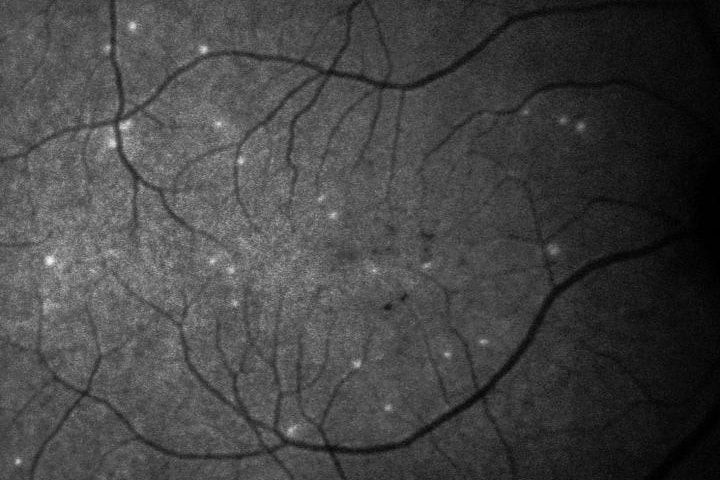A new, artificial intelligence-powered diagnostic was able to detect the early signs of glaucoma on the cellular level in a clinical trial, a full year-and-a-half before current testing methods.
First developed at University College London with funding from the Wellcome Trust, the test begins with a fluorescent dye injected into the bloodstream. After finding its way to the eye, a genetically modified protein binds the molecular marker to the surface of distressed and dying nerve cells in the retina.
When viewed under standard imaging equipment, the dye lights up the damaged cells. Known as DARC, for detection of apoptosis in retinal cells, the test then uses an automated AI algorithm to scan the image and predict the progression of glaucoma, along with its potential risk for future blindness. In the study, researchers were able to accurately gauge and measure retinal cell damage 18 months before standard OCT eye scans.
“What is really exciting, and actually unusual when looking at biological markers, is that there was a clear DARC count threshold above which all glaucoma eyes went on to progress,” said test developer Francesca Cordeiro, chair of ophthalmology at Imperial College London and professor of glaucoma and retinal neurodegeneration at UCL.
Sensitive biomarkers for slow-moving diseases such as glaucoma are urgently needed and can help speed up the pace of research that would otherwise have to wait years to see changes in symptoms, according to Cordeiro, who also serves as director of the clinical trials unit at Western Eye Hospital London. The results of the phase 2, UCL-sponsored clinical trial were published in the journal Expert Review of Molecular Diagnostics.
“Being able to diagnose glaucoma at an earlier stage, and predict its course of progression, could help people to maintain their sight, as treatment is most successful if provided at an early stage of the disease,” said study first author Eduardo Normando, a senior lecturer at Imperial College London. “After further research in longitudinal studies, we hope that our test could have widespread clinical applications for glaucoma and other conditions.”
The test is being developed by the London-based startup Novai, which counts Cordeiro as chief scientific officer, for both glaucoma and age-related macular degeneration—and is exploring its use in other degenerative conditions stemming from the loss of cells, such as multiple sclerosis and dementia.
In addition, shortly after launching last month, the company announced a collaboration with the U.S. division of the Japanese ophthalmology biotech Santen.

